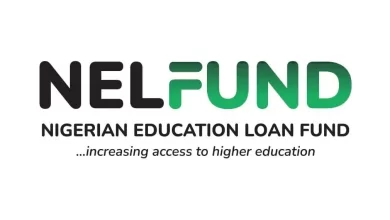The Nigerian Education Loan Fund (NELFUND) has once again demonstrated its commitment to enhancing access to higher education by disbursing over N72 million in student loans to support 1,607 students across three tertiary institutions in Nigeria. This significant move is part of the government’s broader initiative to provide financial relief to students, ensuring that no eligible student is denied the opportunity to further their education due to financial constraints.
Institutions Benefiting from NELFUND’s Latest Disbursement
The latest tranche of disbursement was allocated to students in the following institutions:
- Federal College of Education, Obudu (Cross River State)
- Abdulkadir Kure University, Minna (Niger State)
- Adamawa State University, Mubi (Adamawa State)
Each of these institutions represents a critical hub of learning in its respective region, and the loan allocation is expected to significantly ease financial burdens for the beneficiaries, covering tuition fees, accommodation, and other essential expenses.
NELFUND’s Mission and the Importance of Student Loans
NELFUND was established as a government-backed initiative aimed at bridging the financial gap faced by Nigerian students in tertiary institutions. The program is designed to provide low-interest loans to eligible students, ensuring that higher education remains accessible to all, regardless of their economic background.
Student loans have long been recognized as an effective tool in democratizing education, reducing dropout rates, and equipping graduates with the skills necessary for national development. By removing financial barriers, the government aims to create a more educated workforce, fostering economic growth and social progress.
Breaking Down the N72 Million Allocation
Although the specific breakdown of how the N72 million was distributed across the three institutions has not been officially released, it is clear that this funding will have a direct impact on the recipients. Typically, student loans provided under NELFUND cover tuition fees, study materials, and basic living expenses, allowing students to focus on their academics without the stress of financial instability.
Each beneficiary receives an amount based on their course of study, institution, and specific financial need. This approach ensures that the funds are utilized efficiently and reach students who need them the most.
How NELFUND Loans are Processed
The process of securing a NELFUND loan is designed to be transparent and accessible. Below is a step-by-step guide to how students can apply and benefit from these loans:
- Application Submission: Eligible students submit their applications through an online portal or via their institution’s student affairs office.
- Eligibility Verification: The applications are reviewed to ensure that the students meet the required criteria, including academic standing and financial need.
- Approval and Disbursement: Once approved, the loan amount is directly disbursed to the institutions, ensuring that the funds are used for the intended purpose.
- Repayment Plans: After graduation, beneficiaries are given a structured repayment plan, ensuring that they can pay back the loan without undue financial strain.
Impact on Beneficiary Institutions and Students
The disbursement of these funds is expected to bring immense relief to students struggling with financial difficulties. Many students face challenges such as:
- Inability to pay tuition fees on time, leading to deferment or dropping out.
- Limited access to study materials, reducing academic performance.
- Struggles with basic needs such as accommodation and feeding, which affect focus and productivity.
By addressing these issues, NELFUND is not only empowering individual students but also strengthening the education system as a whole. Institutions also benefit from timely tuition payments, enabling them to improve infrastructure, hire qualified staff, and enhance academic programs.
The Bigger Picture: NELFUND’s Long-Term Vision
The Nigerian government has expressed its commitment to expanding the student loan scheme under NELFUND, with plans to increase funding to reach more students across the country. Since its inception, the initiative has already disbursed billions of naira to thousands of students, and the impact is being felt nationwide.
Some of the long-term goals include:
- Expanding coverage to include all accredited tertiary institutions in Nigeria.
- Enhancing the application process to make it even more seamless and accessible.
- Introducing flexible repayment terms that align with students’ post-graduation employment status.
- Collaborating with financial institutions to improve loan management and sustainability.
Challenges and Areas for Improvement
While the NELFUND disbursement is a significant step in the right direction, there are still areas that require improvement:
- Awareness and Accessibility: Many eligible students are unaware of the loan program or struggle with the application process.
- Loan Repayment Challenges: Concerns about post-graduation employment rates and the ability of students to repay loans remain a crucial issue.
- Corruption and Mismanagement Risks: Ensuring transparency in fund allocation and usage is critical to maintaining trust in the program.
To address these challenges, NELFUND and the government must work on creating more awareness campaigns, developing flexible repayment structures, and enforcing strict monitoring and evaluation mechanisms to ensure proper utilization of funds.
Conclusion
The disbursement of N72 million to 1,607 students across three Nigerian tertiary institutions marks another milestone in the government’s commitment to improving access to higher education. By providing financial assistance to students at Federal College of Education, Obudu; Abdulkadir Kure University, Minna; and Adamawa State University, Mubi, NELFUND is playing a crucial role in shaping the future of Nigerian students and, by extension, the nation’s economy.
With ongoing improvements and expansion plans, NELFUND’s impact is set to grow, ensuring that every deserving Nigerian student can pursue their education without financial hindrance. However, sustained efforts are required to ensure efficient implementation, transparency, and sustainability of the student loan scheme.
As Nigeria continues to navigate economic challenges, investment in education remains one of the most effective strategies for long-term national development. The recent disbursement is just a step in the right direction, but continuous government support and proper policy implementation will be key to achieving the full potential of the initiative.
